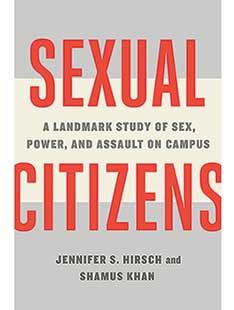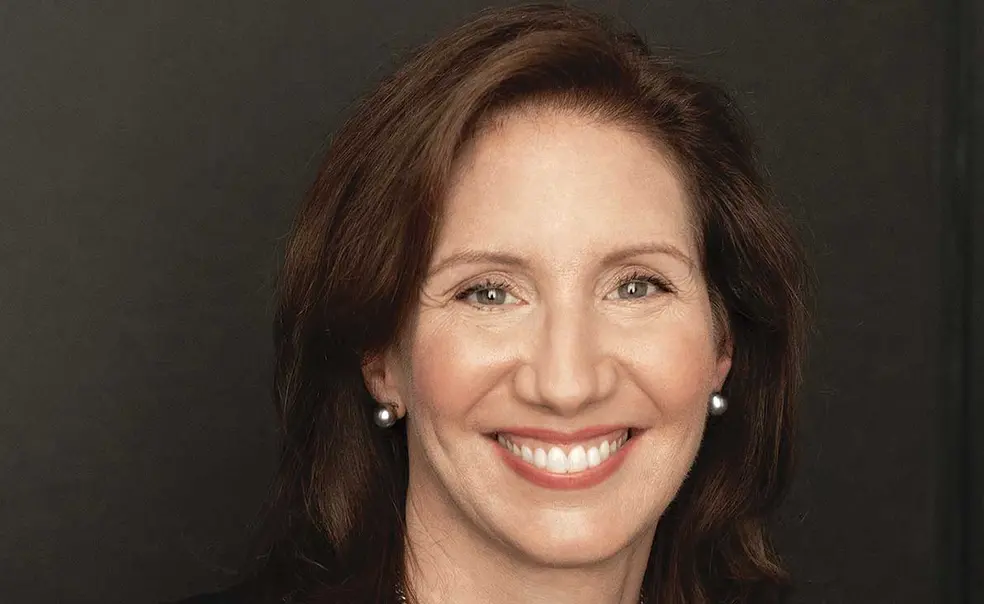Q&A: Jennifer S. Hirsch ’88 on Shifting the Conversation
Using a public-health approach, new perspectives on campus sexual assaults are found
The classic tale of college rape features a predatory fraternity brother victimizing a naïve female classmate during a drunken hookup gone wrong. But that familiar dynamic forms just one part of the complex landscape of sex and sexual assault on campus, says anthropologist Jennifer S. Hirsch ’88, who co-directed a multipronged, $2 million research project that looked closely at the experiences of Columbia University undergraduates.

Although their new book about SHIFT’s findings, Sexual Citizens: A Landmark Study of Sex, Power, and Assault on Campus (W.W. Norton), tells many wrenching stories, “overall, the take is one of hope, because we think we really can do much better,” says Hirsch. “There are some clear ways forward to prevent the kinds of assaults that reflect inadvertent bad behavior.”
PAW spoke with Hirsch during a recent visit to Princeton.
What was the genesis of SHIFT?
As I was observing the national conversation around campus sexual assault in the summer of 2014, it seemed to me that something was missing: There was very, very little attention to prevention. I thought, if we understood the social source of this behavior, we could do more to prevent it.
Don’t universities already address these issues?
When kids arrive on campus to get a 90-minute session on consent [during] orientation week, that’s like teaching them calculus when they don’t even know what the numbers are. The level of sexual illiteracy we saw among some young people — and these are very well-prepared young people in other ways — was extraordinary. It’s not their fault; it’s socially produced. Where are the parents teaching them not to assault people, and where are the schools? We’re very, very big proponents of sex ed as one element of a really comprehensive response.
You found that power differentials play an important role.
You can’t talk about sexual assault without talking about power. The mind goes, obviously, toward gendered power, but we talk a lot in the book about race and also about age disparities, which are an unremarked but very powerful form of inequality that can be paralyzingly silencing in sexual interactions. To really think about power means helping young people learn to be aware of ways in which their social power can silence their sexual partner.
What’s changed at Columbia in response to SHIFT?
One of the dining halls is now open all night. If you think about it, there’s a funneling effect of drunk people back into rooms where the only place to sit is a bed. It’s not like the 2 a.m. french fries are going to prevent every sexual assault, but for some number of students, it provides another option. That’s what we do in public health: We think about changing the context.
Who’s responsible for ending campus sexual assault?
One of the reasons that we’ve failed to solve this problem is because we’ve only looked to higher education to solve it, and really this is a problem that everybody is responsible for solving. Families have a big role to play, and K-12 education has a big role to play, and religious institutions have a big role to play. We’re not going to get there without all hands on deck.
Why do we talk so much about campus sexual assault when evidence suggests that college women are less likely to be assaulted than non-college women of the same age?
College students have organized and advocated very effectively for higher-education institutions in which they can thrive, and pervasive sexual assault obviously is a deterrent to a climate of thriving. Certainly, there’s been a focus on women in college because they are the people whose parents read the nation’s leading newspapers and lead the nation’s institutions, so their bodies are seen as more valuable and their suffering is seen as more attention-worthy.
Also, higher-education institutions [are] sort of like terrariums. There are a lot of factors that we can control, and so there are a lot of things that we could change — make different and better — in a way that’s harder in community contexts.
Interview conducted and condensed by Deborah Yaffe
This is an expanded version of an interview from the April 8, 2020, issue.












No responses yet